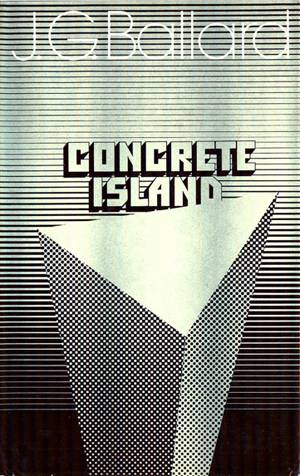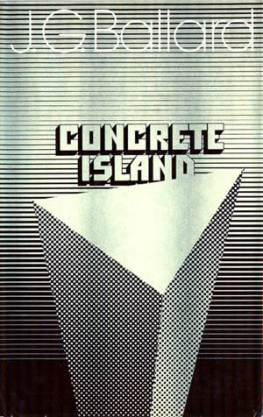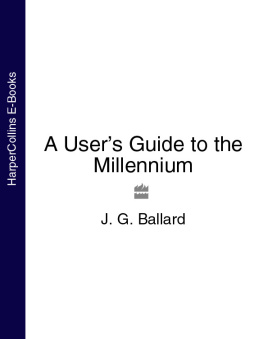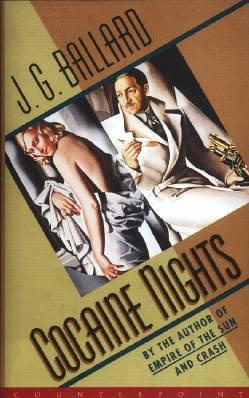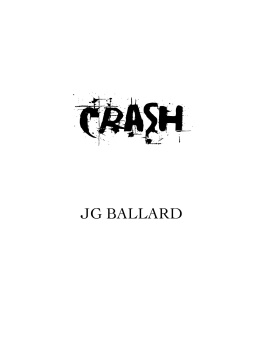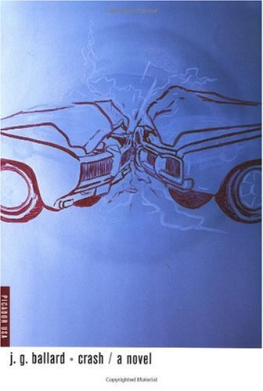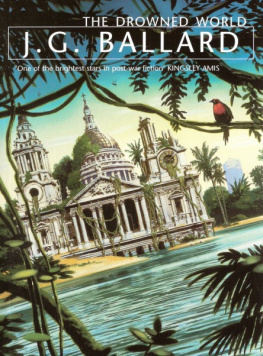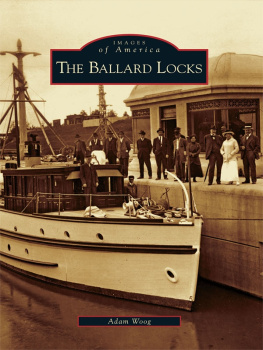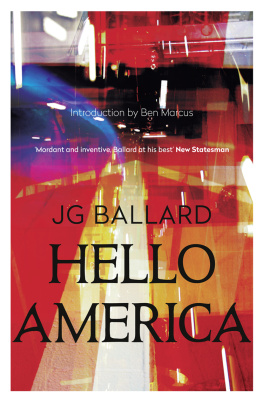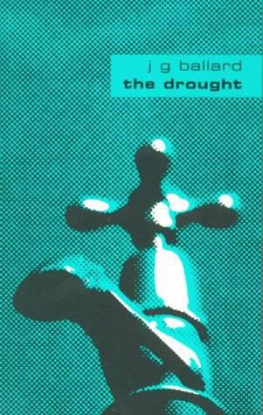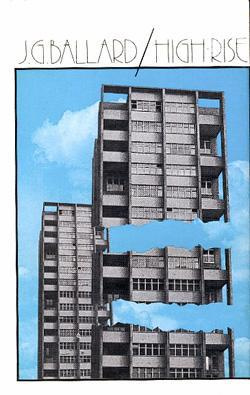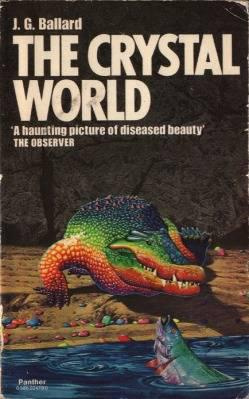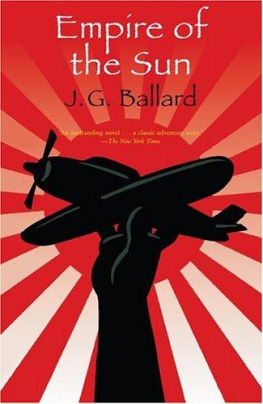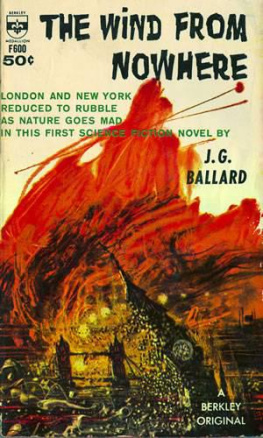Annotation
A 35-year-old architect is driving home from his London office when his car swerves and crashes onto a traffic island lying below three converging motorways. Uninjured, he climbs the embankment to seek help, but no one will stop for him and he is trapped on the island, where he remains.
"Visionary of both style and substance... the literary equivalent of Salvador Dali or Max Ernst."-The Washington Post Book World
"Ballard's novels are complex, obsessive, frequently poetic, and always disquieting chronicles of nature rebelling against humans, of the survival of barbarism in a world of mechanical efficiency, of ethropy, anomie, breakdown, ruin... The blasted landscapes that his characters inhabit are both external settings and states of mind."-Luc Sante
J. G. Ballard
Concrete island
INTRODUCTION
The day-dream of being marooned on a desert island still has enormous appeal, however small our chances of actually finding ourselves stranded on a coral atoll in the pacific. But _Robinson Crusoe__ was one of the first books we read as children, and the fantasy endures. There are all the fascinating problems of survival, and the task of setting up, as Crusoe did, a working replica of bourgeois society and its ample comforts. This is the desert island as adventure holiday. With a supplies-filled wreck lying conveniently on the nearest reef like a neighbourhood cash and carry.
More seriously, there is the challenge of returning to our more primitive natures, stripped of the self-respect and the mental support systems with which civilisation has equipped us. Can we overcome fear, hunger, isolation, and find the courage and cunning to defeat anything that the elements can throw at us?
At an even deeper level there is the need to dominate the island, and transform its anonymous terrain into an extension of our minds. The mysterious peak veiled by cloud, the deceptively calm lagoon, the rotting mangroves and the secret spring of pure water together become out-stations of the psyche, as they must have done for our primeval forbears, filled with lures and pitfalls of every kind.
The Pacific atoll may not be available, but there are other islands far nearer to home, some of them only a few steps from the pavements we tread every day. They are surrounded, not by sea, but by concrete, ringed by chain-mail fences and walled off by bomb-proof glass. All city-dwellers know the constant subliminal fear of being marooned by a power failure in the tunnels of a subway system, or trapped over a holiday weekend inside a stalled elevator on the upper floors of a deserted office building.
As we drive across a motorway intersection, through the elaborately signalled landscape that seems to anticipate every possible hazard, we glimpse triangles of waste ground screened off by a steep embankments. What would happen if, by some freak mischance, we suffered a blow-out and plunged over the guard-rail onto a forgotten island of rubble and weeds, out of sight of the surveillance cameras?
Lying with a broken leg beside our overturned car, how will we survive until rescue comes? But what if rescue never comes? How do we attract attention, signal to the distant passengers speeding in their coaches towards London Airport? How, when faced with the task, do we set fire to our car?
But as well as the many physical difficulties facing us there are the psychological ones. How resolute are we, and how far can we trust ourselves and our own motives? Perhaps, secretly, we hoped to be marooned, to escape our families, lovers and responsibilities. Modern technology, as I tried to show in _Crash__ and _High Rise__, offers an endless field-day to any deviant strains in our personalities. Marooned in an office block or on a traffic island, we can tyrannise ourselves, test our strengths and weaknesses, perhaps come to terms with aspects of our characters to which we have always closed our eyes.
And if we find that we are not alone on the island, the scene is then set for an encounter of an interesting but especially dangerous kind...
1 Through the crash barrier
Soon after three o'clock on the afternoon of April 22nd 1973, a 35-year-old architect named Robert Maitland was driving down the high-speed exit lane of the Westway interchange in central London. Six hundred yards from the junction with the newly built spur of the M4 motorway, when the Jaguar had already passed the 70 m.p.h. speed limit, a blow-out collapsed the front nearside tyre. The exploding air reflected from the concrete parapet seemed to detonate inside Robert Maitland's skull. During the few seconds before his crash he clutched at the whiplashing spokes of the steering wheel, dazed by the impact of the chromium window pillar against his head. The car veered from side to side across the empty traffic lanes, jerking his hands like a puppet's. The shredding tyre laid a black diagonal stroke across the white marker lines that followed the long curve of the motorway embankment. Out of control, the car burst through the palisade of pinewood trestles that formed a temporary barrier along the edge of the road. Leaving the hard shoulder, the car plunged down the grass slope of the embankment. Thirty yards ahead, it came to a halt against the rusting chassis of an overturned taxi. Barely injured by this violent tangent that had grazed his life, Robert Maitland lay across his steering wheel, his jacket and trousers studded with windshield fragments like a suit of lights.
In these first minutes as he recovered, Robert Maitland could remember little more of the crash than the sound of the exploding tyre, the swerving sunlight as the car emerged from the tunnel of an overpass, and the shattered windshield stinging his face. The sequence of violent events only micro-seconds in duration had opened and closed behind him like a vent of hell.
'... my God...'
Maitland listened to himself, recognizing the faint whisper. His hands still rested on the cracked spokes of the steering wheel, fingers splayed out nervelessly as if they had been dissected. He pressed his palms against the rim of the wheel, and pushed himself upright. The car had come to rest on sloping ground, surrounded by nettles and wild grass that grew waist-high outside the windows.
Steam hissed and spurted from the crushed radiator of the car, spitting out drops of rusty water. A hollow roaring sounded from the engine, a mechanical death-rattle.
Maitland stared into the steering well below the instrument panel, aware of the awkward posture of his legs. His feet lay among the pedals as if they had been hurriedly propped there by the mysterious demolition squad which had arranged the accident.
He moved his legs, reassured as they took up their usual position on either side of the steering column. The pedal pressure responded to the balls of his feet. Maitland ignored the grass and the motorway outside and began a careful inventory of his body. He tested his thighs and abdomen, brushed the fragments of windshield glass from his jacket and pressed his rib-cage, exploring the bones for any sign of fracture.
In the driving mirror he examined his head. A triangular bruise like the blade of a trowel marked his right temple. His forehead was covered with flecks of dirt and oil carried into the car by the breaking windshield. Maitland squeezed his face, trying to massage some expression into the pallid skin and musculature. His heavy jaw and hard cheeks were drained of all blood. The eyes staring back at him from the mirror were blank and unresponsive, as if he were looking at a psychotic twin brother.
